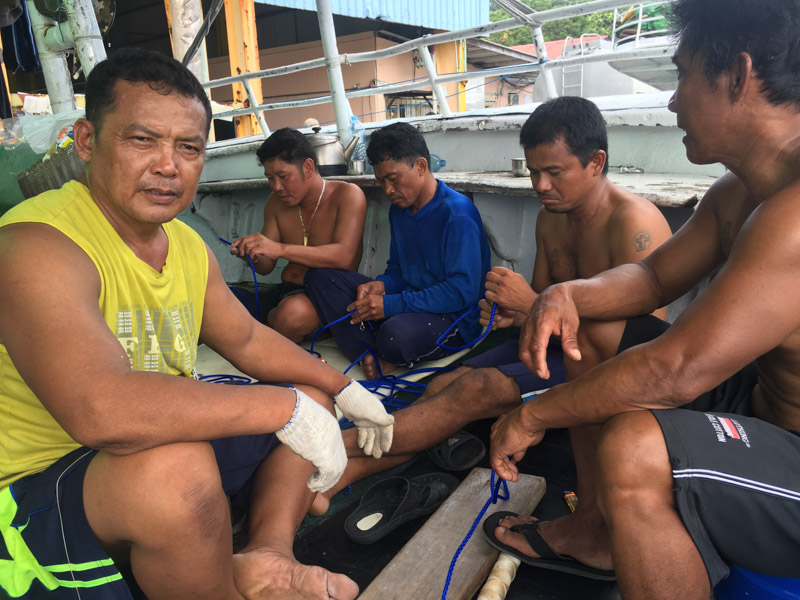The last 2 weeks I have been working for FAO as a resource consultant for a series of workshops on the formulation of national strategies and action plan for compliance with the 2009 FAO Agreement on Port State Measures Agreements in 5 very different countries. More than ever Frank Zappa’s “One Size Fits All” keeps resonating in my ears.
There is no doubt that the PSM concept is fantastic, vessels need to come to port, therefore, is really cost effective in comparison to at sea boarding and so on… Is largely the quality of Port State monitoring and the work of its fisheries officers that determine the risk of illegally or unreported fish entering the supply chain.
For this Port states must consider the following mechanisms:
- Two-way communications for acquiring information about vessels using or intending to use port facilities; communications with flag states and parties such as coastal states and RFMOs are basic and fundamental.
- Designated specific fishing ports for foreign fishing vessels must be made mandatory as to enables effective oversight.
- Incoming vessels must formally request port entry to enable resources to be allocated for port procedures, vessel inspections if required and processing of catch certificates and so on.
- A system of authorizations for entering ports and unloading should be in place to ensure that permissions are denied in cases of suspected or established IUU fishing.
- When inspections are required, sufficiently competent fisheries inspectors with law-enforcement powers must be on hand.
- Standard inspection information must be recorded and transmitted in accordance with PSMA and/or RFMO rules.
In some developing countries the denial of a port use, hence of a landing authorization and potentially the denial of validation under a CDS, may involve minimal legislative changes and can be implemented by training the relevant officials, and so establishing a simple path to providing the enforcement function of a responsible port state.
Even if you don't have a strong sanction regime, when you to deny port access to fishing vessels suspected of IUU fishing, or to deny landing authorizations and access to port services or even just delay them for investigations. These actions provide for substantial losses for illegal operators, and there are also economic consequences in terms of delays for carriers, incomplete orders, loss of trust and in many cases financial penalties associated with incomplete volumes under contract.
If we tackle the illegality at the port, any issues down the chain are around volumes: misreporting, underreporting, fish laundering and here is where a CDS comes to play.
Said so, the PSMA is a high-level document agreed by many countries, yet the realities of different countries are so varied that it cannot just be "implanted" and so just apply to all countries and to the realities of its different ports.
How can you bring the realities of places like Thailand, Tuvalu, Ghana, Uruguay, or Curacao Just to name a random few) into one document without some serious customization? Thankfully this possibility is somehow contemplated, but to an extent only
Furthermore, this customization needs to include the role of regional organisations in each region, for example in the Pacific the role of FFA is overarching for all its member and supplies the Port State a strength that sometimes cannot be totally captured by the view or a “single” State.
Also, there is the fact that if country may choose not to become a party (sign and ratify) for reasons related to cost effectiveness for example, yet still can comply with the principles of PSM.
Many busy ports in developing countries may be reticent to sign because this will imply compliance with strictly regulated systems inside the PSMA (such as reporting and exchange of information with various actors including flag state, state of nationality of the master, FAO, RFMOs, etc.)
For some regions, similar outcomes could be achieved via RFMO CMM like the one that IOCT has endorsed and has been discussed by the WCPFC
Independently of the methodology, PSM is here to stay and it would become the norm with time.
A lot of my involvement in this topic relates to vessel pre inspection intelligence, inspection and enforcement. Yet these are areas that I know from being at the receiving end of them, as well from training Inspectors on the “tricks of the trade”. But I have never been a fisheries officer and don't come from an enforcement background (i.e. police, coast guard) as many of my colleagues, so I need to be extra careful not to be too casual about methodology.
Personally, I’m learning a lot, even if sometimes I get a bit down since most of the outcomes of this work, at this stage at least, are all paper based: strategies, policies, etc… and some days I feel I don't produce much more than stacks of words only. But as my friend Pam told me, those documents can be the start of better things to come, and she is normally right.
